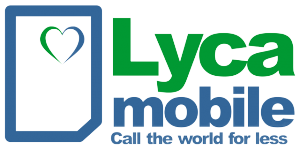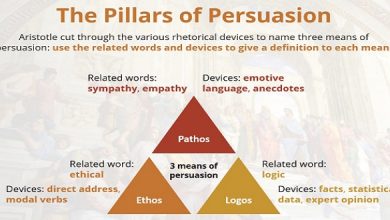Choosing the Right Marketing Localization Agency: A Step-by-Step Guide

Expanding your brand internationally in globalized business demands a deep comprehension of many cultures and languages. Successful marketing localization, or modifying content to appeal to the unique cultural and linguistic quirks of specific target audiences, is one of the essential components in doing this. The procedure is not complete without choosing the best marketing localization company. With the help of this thorough, step-by-step guide, organizations should be able to navigate the selection process and confidently select a localization partner.
The Importance of a Marketing Localization Agency
Offering things is not the most efficient approach to selling in marketing; instead, you need to deliver an emotional experience. A mental shift is necessary because the target audience speaks a different language and has a distinct culture.
Consequently, it can be claimed that the marketing localization agency is crucial in assisting firms with client communication and translating marketing materials. After all, with over 1.5 billion native and non-native speakers, English is the most spoken worldwide.
It could be alluring to localize your marketing materials when you can use English to reach a demographic as large as 1 in 7 of the global population. It isn’t. You cannot use the same advertising tactics and product offerings in different markets.
“If you talk to a man in a language he understands, that goes to his head,” Nelson Mandela famously stated. Speaking to someone in his native tongue touches him deeply.
Consequently, companies that use English as their sole marketing language stand to lose out on a significant percentage of internet buyers. Marketing localization services can act as a bridge to link you and your customers and communicate a precise message.
Choosing the Right Marketing Localization Agency
Step 1: Describe Your Requirements for Localization
Identifying your precise localization requirements before beginning the selection process is essential. Decide which languages and areas to target, what kinds of content (websites, marketing materials, films, etc.) must be localized, and whether special requirements are unique to your industry. The following steps will build upon this first clarity, which will assist you in selecting suitable applicants according to their qualifications and experience.
Step 2: Do Research and Create a Shortlist of Agencies
Make a comprehensive investigation to find possible localization companies that meet your requirements. Use web resources, trade publications, and peer referrals to create a roster of companies with a track record of success.
Step 3: Assess Expertise and Capabilities
Once you have a short list of potential agencies, it’s time to assess their expertise and capabilities. A reputable marketing localization agency should have a team of skilled linguists, cultural experts, and technical professionals capable of handling diverse localization needs. Evaluate their language proficiency, cultural understanding, and the services they offer. Factors such as their experience in your industry, the languages they specialize in, and their scope of services should all be considered. Online reviews, testimonials, and case studies are useful resources for assessing the satisfaction of prior clients and understanding the agency’s dependability and professionalism. Ask about the methods and technology they use for precise and effective localization. A technologically advanced localization agency will probably provide accurate translations and efficient and economical workflows.
Step 4: Evaluate Work Experience
Industry-specific expertise is essential for a localization project to be successful. Verify the agencies on your shortlist’s experience in the specific industry you are in. To create content that appeals to your intended audience, it is necessary to be conversant with industry jargon, rules, and cultural quirks. An agency with experience in the relevant field is more likely to be aware of your company’s particular difficulties and demands, which will guarantee the precision and potency of the translated text.
Step 5: Assess Quality Assurance Procedures
Translation alone is insufficient for effective localization; rigorous quality assurance procedures are needed to ensure precision and cultural fit. Find out about the agency’s quality assurance procedures, such as proofreading, cultural analysis, and linguistic validation. A trustworthy agency will have a strong quality control procedure to guarantee that the finished products satisfy the highest requirements. This stage is crucial for preventing mistakes, upholding brand continuity, and ensuring the localized material complies with the target audience’s cultural expectations.
Step 6: Ask for a Sample Assignment
Request case studies or sample work from an agency highlighting its past localization efforts to understand the company’s capabilities better. Examining their work reveals their attention to detail, grammatical correctness, and topic adaptation skills. Make sure the samples meet your requirements and standards. This stage provides a valuable means of evaluating the agency’s overall localization strategy, inventiveness, and flexibility.
Step 7: Get Quotes and Explain Prices
Ask the remaining firms on your shortlist for comprehensive quotations as you reduce the options available. Make the pricing structure clear, including any extra fees for last-minute purchases, modifications, or unanticipated difficulties. Pricing transparency is essential for preventing unforeseen costs and guaranteeing that the investment needed for your translation efforts is understood. Spend some time negotiating a thorough and open pricing agreement and talking about any possible hidden fees.
Step 8: Verify Client References
Get recommendations from the agencies and actively contact their past clientele before making your ultimate choice. Speaking with previous clients can provide important information about the agency’s project management and communication abilities, timeliness, and general level of satisfaction with the localization services rendered. Ask these references about any issues or questions to comprehensively understand the agency’s dependability and expertise.
Summarize
In conclusion, selecting the best marketing localization company is an important strategic choice that will significantly impact how well your international marketing initiatives perform. Businesses can choose an agency that meets their unique localization needs, aligns with their industry, produces high-quality content, and promotes a cooperative and productive working relationship by carefully following this step-by-step guide. Selecting the ideal localization partner is an investment in your company’s future growth and international exposure.





